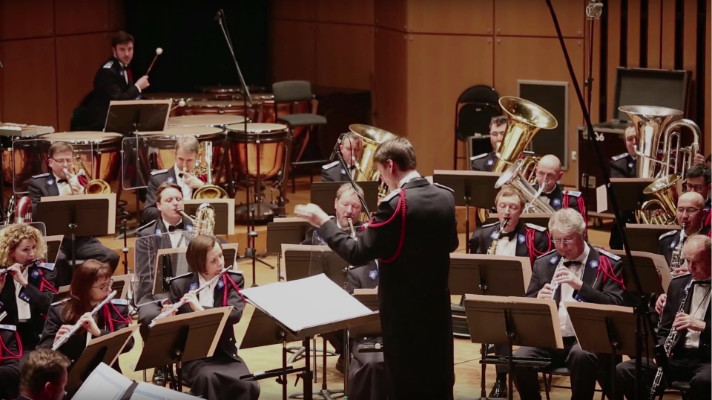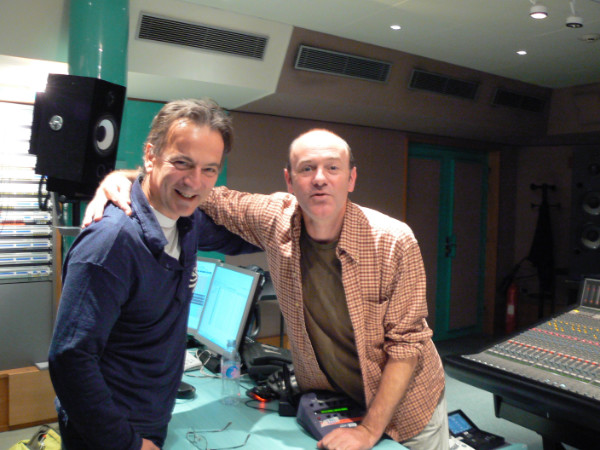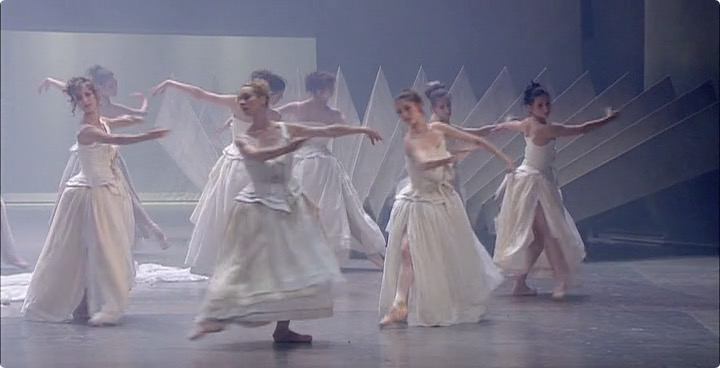Pianist-composer, when you composed this first piano concerto, did you think of yourself?
Obviously, I thought of myself. I didn't write this concerto for me, but it's true that this score is a sort of summary of my relations with the instrument. Nonetheless, I hope not to keep it for myself and that the work will quickly live its own life, the future of a concerto being to be played and to please pianists, otherwise, there's not really much point. But I greatly enjoy playing it myself.
What attracted you to the concerto genre?
Mozart !... (laughter). It is a form familiar to me since, as a pianist, I have practiced it since childhood. The concertante form is still quite topical. This form pleases the public since, in general, it is easier to follow than a purely symphonic structure, and as I militate in favour of today's music being more accessible and go to a lot of trouble to that end, I found that the concerto was a form I had to tackle. The concerto form is fantastic-it's still as powerful and valid, there's not much to be changed and I wanted to confront an extremely coded form. This is not a veiled reference nor is it an exercise of style, but I had to find myself in the position of an Aragon writing alexandrines...
Why do you want music to be more accessible? Was it no longer accessible at all? Is it, in your opinion, because it demands too much effort? What does "making music more accessible" mean? Would it mean imitating pop singers? Doesn't music that's off the beaten path necessarily require an effort on the listener's part?
Yes, of course. But there are ways and other ways. I think that composers of the generation before mine went much too far—to the limits of communication. One of the responsibilities of the creative musician is to make music heard and to accept the fact of working for the public. It is not a question of playing pedagogue or Johnny Hallyday. Obviously, I don't write songs. It's clear: there's a difference between a song that has great potential for popular success and a work of written music like mine. But to make interesting music, it's not obligatory to be incomprehensible. We're now living in a period fairly similar to that of the Renaissance. From the musical point of view, I do have the feeling we're emerging from a sort of Middle Ages, that, after a very dark, interior period of calculations that were not necessarily uninteresting, we are opening onto an era comparable to the one that went from the Middle Ages to the Renaissance and then the pre-Baroque. At that time, composers thought about the concept that consisted of saying to oneself:" I'm going to have the courage to hide the complexity", and I find that strategy interesting. But regardless of what we do today, for the general public, music in symphonic concerts is handicapped by an off-putting image. The composer I defend is one who manages to hide his (or her) art, and when I act in that way, I am myself. The ego that interests me in my music is that which is capable of making melodic lines appear extremely simple and about which some people in the contemporary milieu are shocked, saying, "Oh, Levaillant, he's demagogic". Well, no!
Yet you have as much difficulty establishing yourself with the general public as those who write works that are more or less convoluted!
Yes, that's what's mad, eh? And which goes to show that, for my part, it's not a demagogic undertaking. Indeed, I've been experiencing this situation for quite some time, which is why I believe in a sort of fate on creation that's fairly incredible. It seems to me that—but this is perhaps going to change-there is a sort of habit which means that creation is not judged for itself. Works are never judged for what they are, i.e., successful or failed—their function is the same, which is extremely tiresome or even intolerable. It's only in music that you encounter a situation like that.
Why did you give a title to your concerto, L'Echo de Narcisse, rather than just leave the generic name of concerto?
I think it's a nice title, no? (laughter) I like giving titles to my works because I reckon that is also part of my concern for making works closer to the interest of others, and I find that titles are like an open door, letting the imagination work and allowing for a relation doubtless more direct than "Concerto No. 1" or "Quartet No. 4". Of course, there are also titles that are completely abstruse, but that's another debate.
Narcissus, is that you?
It's the piano! The piano is reflected in the orchestra—that's the idea. Contrary to Beethoven's concertos, for example, this isn't a Romantic combat, the struggle of an individual against society; nor, as in Mozart, is it the instrumentalist who is in the background of the orchestra for the continuo and who suddenly comes to forefront. It is, in fact, openly a somewhat osmotic relationship, and the orchestra is the echo of the piano. That's why I played on the name Narcissus. Concerning Narcissus, I have long felt a certain anger because I consider the myth of Narcissus is completely misinterpreted, particularly by Freud and his successors. If you reread Ovid'sMetamorphoses carefully, you perceive that it is never said that Narcissus knows he is looking at himself, and that is of the utmost importance. Ovid says he fell in love with an image, that's all, and that is why it is important to reinterpret this myth. Narcissus fell in love with an image, so he doesn't know what love is—to the point that he rejects Echo. This gave me the idea that perhaps the piano, in the concerto, doesn't know that it's itself it hears in the orchestra. As an instrument, the piano is either quite straightforward or quite general, i.e., one can make it the instrument of the symphonic reduction just as well as the instrument of the concerto that is dispersed in the timbres of the orchestra.
Why did you wait so long before writing this first concerto?
I think that's due to the fact that I had played a lot of improvised music, and I had some scruples or a certain circumspection about writing music for piano. Moreover, this concerto sparked a whole undertaking now consisting of writing piano pieces. It's as if I broke the mirror.
Would improvisation therefore be a danger?
Not necessarily, because it's great to live, but it's true that the creativity which that implies is not the same as that of writing. These two worlds are totally antagonistic.
The cadenza of your concerto, did you write it or do you leave it to improvisation?
I wrote one version, but I think I'm going to improvise, if Jacques Mercier agrees (laughter). During the first performance, I started with the written text, then I began to improvise. It was fantastic because, suddenly, the conductor's gesture remained suspended, as I hadn't warned him. I liked that moment, which was quite exciting.
The laugh of Narcissus!...
Something like that. It was a rather theatrical and magical moment. There was the danger of finding myself like a tightrope walker saying to himself: "Okay, I've got to get to the other end, I'm on the wire'.Yeah that's good!"
In this work, you seem to be looking for a neo-Romantic expressiveness...
Of course, and I feel quite close to a certain kind of French music, but I’m not far from American music either. In fact, there is a blending of the two universes in my music, which is thus, perhaps, Franco-American. For the French side, I think of Ravel—I’m a fan of Ravel. I played and recorded his Valses nobles et sentimentales as of the age of 11. There’s also a lot of jazz in there, which I’ve more or less hidden (laughter).
Your concerto alternates fast-slow-fast movements.
The first movement itself alternates fast and slow sections. This first movement is in strict sonata form with theme and counter-theme. The writing is clearly dramatic, but there is no pre-established programme. I am, however, a narrator, not a formalist. For me, music is the word, the piano is something that speaks, so all music tells a story. I have no relationship with abstraction—it is behind the work. It’s indispensable, but it’s ‘cooking’—the work of the composer who doesn’t have to talk about it to anyone. That concerns me, that concerns my profession. As with a chair: the important thing is to be able to sit on it, not watch how it is made.
Interviewed by Bruno Serrou
Paris, 28 February 2000



